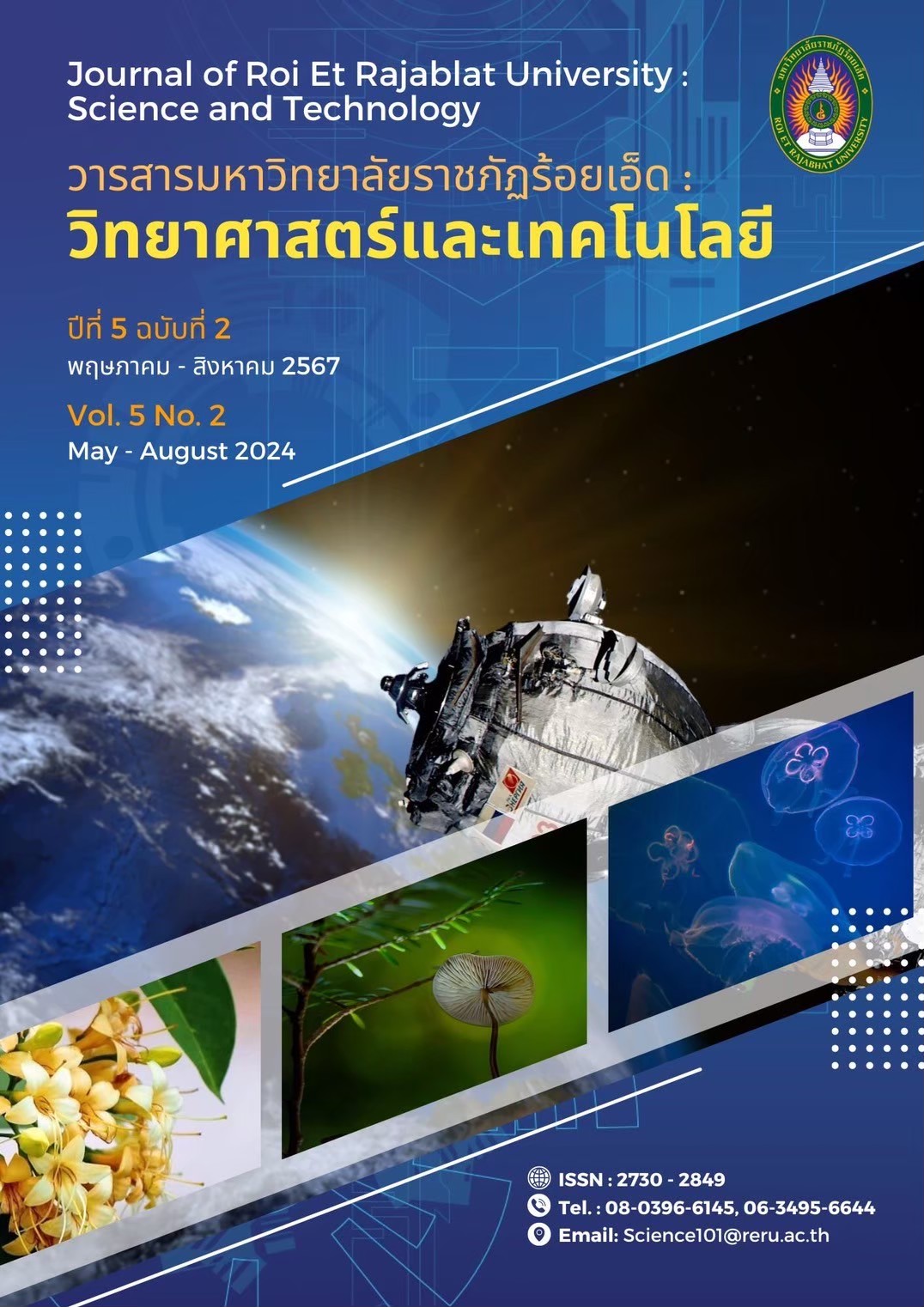การส่งเสริมความมั่นใจในตนเองของผู้นำออกกำลังกาย ตามแนวคิดหลักปรัชญาของเศรษฐกิจพอเพียง
คำสำคัญ:
ความมั่นใจในตนเอง, ผู้นำออกกำลังกาย, ปรัชญาของเศรษฐกิจพอเพียงบทคัดย่อ
การวิจัยนี้มีวัตถุประสงค์เพื่อเพื่อศึกษาและเปรียบเทียบผลของการใช้กิจกรรมส่งเสริมความมั่นใจในตนเองในการเป็นผู้นำการออกกำลังกายตามแนวคิดหลักปรัชญาของเศรษฐกิจพอเพียง กลุ่มตัวอย่างจำนวน 96 คน ได้มาจาการเลือกแบบเจาะจง เข้าร่วมการวิจัยระยะ 4 สัปดาห์ เก็บข้อมูลก่อนและหลังการวิจัยด้วยแบบทดสอบระดับความรู้และระดับความั่นใจในการเป็นผู้นำการออกกำลังกาย วิเคราะห์ข้อมูลด้วยการหาค่าเฉลี่ย ส่วนเบี่ยงเบนมาตรฐาน และการทดสอบค่า ที กำหนดความมีนัยสำคัญทางสถิติที่ระดับ .05 ผลการวิจัยพบว่า ภายหลังเข้าร่วมกิจกรรมกลุ่มตัวอย่างมีระดับความรู้เกี่ยวกับกิจกรรมส่งเสริมการเป็นผู้นำการออกกำลังกายตามแนวคิดหลักปรัชญาของเศรษฐกิจพอเพียง เพิ่มขึ้นสูงกว่าก่อนเข้าร่วมกิจกรรมอย่างมีนัยสำคัญทางสถิติ (p = 0.01) ด้านความมั่นใจในตนเองในการเป็นผู้นำการออกกำลังกาย พบว่ากลุ่มตัวอย่างมีความมั่นใจในตนเองในการเป็นผู้นำการออกกำลังกาย สูงกว่าก่อนเข้าร่วมกิจกรรมอย่างมีนัยสำคัญทางสถิติ (p = 0.01) ผลการวิจัยนี้ชี้ให้เห็นว่ากิจกรรมที่ออกแบบมาเพื่อส่งเสริมความเป็นผู้นำการออกกำลังกายตามหลักปรัชญาเศรษฐกิจพอเพียงสามารถเพิ่มพูนความมั่นใจในตนเองในการเป็นผู้นำการออกกำลังกายของผู้เข้าร่วมได้อย่างมีประสิทธิภาพ
เอกสารอ้างอิง
American College of Sports Medicine. (2020). ACSM’s Health-Related Physical Fitness Assessment Manual. Lippincott Williams & Wilkins.
American College of Sports Medicine. (2004). Physical activity programs and behavior counseling in older adult populations. Med Sci Sports Exerc, 36(11), 1997-2003. https://pubmed.ncbi.nlm.nih.gov/15514518/
American Council on Exercise. (2018). ACE Group Fitness Instructor Handbook. American Council on Exercise.
Avery, G. (2005). Leadership for sustainable futures: Achieving success in a competitive world. Edward Elgar Publishing.
Cheausuwantavee, T. (2012). Philosophy of Sufficiency Economy and Sustainable Development in Thailand: The Impact of Cultural and Societal Factors. Asian Social Science, 8(1), 11-20. https://doi.org/10.5539/ass.v8n1p11
Cress, M.E., Buchner, D.M., Prohaska, T., Rimme,r J., Brown, M., Macera, C., Dipietro, L., & Chodzko-Zajko, W. (2005). Best practices for physical activity programs and behavior counseling in older adult populations. J Aging Phys Act, 13(1), 61-74. https://pubmed.ncbi.nlm.nih.gov/15677836/
Estabrooks, P.A., Munroe, K.J., Fox, E.H., Gyurcsik, N.C., Hill, J.L., Lyon, R., Rosenkranz, S., & Shannon, V.R. (2004). Leadership in physical activity groups for older adults:a qualitative analysis. J Aging Phys Act, 12(3), 232-45. https://pubmed.ncbi.nlm.nih.gov/15263101/
His Majesty King Bhumibol Adulyadej. (1999). The Royal Development Projects and the Philosophy of Sufficiency Economy. Bangkok: Amarin Printing and Publishing. International Fitness Professionals Association. (2020). Fitness Leadership Certification Program. IFPA.
Institute of Sufficiency Economy. (2018). Sufficiency Economy Philosophy for Sustainable Development. Bangkok: IS Institute.
Melton, D.I., Katula, J.A., & Mustian, K.M. (2008). The current state of personal training: an industry perspective of personal trainers in a small Southeast community. J Strength Cond Res, 22(3), 883-889.
https://journals.lww.com/nscajscr/fulltext/2008/05000/the_current_state_of_personal_training an.33.aspx
Merrill, R. M., Aldana, S. G., Pope, J. E., Anderson, D. R., & Coberley, C. (2021). Effectiveness of health and wellness initiatives for improved productivity and lower health costs. Population Health Management, 24(2), 190-199. DOI: 10.1097/JOM.0b013e318220c2f4
National Economic and Social Development Board. (2017). Thailand’s Twelfth National Economic and Social Development Plan (2017-2021). Office of the Prime Minister.
Olivo, J. (2018). Preferred Traits in Personal Trainers [Unpublished Master's degree thesis]. Stephen F. Austin State University Texas. https://scholarworks.sfasu.edu/cgi/viewcontent.cgi?article=1229&context=etds
Phoeysiri, A., Koeipakvaen, T., & Sertbudra, P. (2023). Marketing Strategies Affect the Decision of Users of the Sport Science Center, National Sport University. Journal of Health Science and Alternative Medicine, 5(02), 15–18. https://doi.org/10.14456/jhsam.2023.7
Pimthip, L. (2021). Working Barriers of Fitness Instructors and Quality of Life During Pandemic COVID-19. Master of Science (Sport and Exercise Science) Faculty of Physical Education, Srinakharinwirot University. URI: http://ir-ithesis.swu.ac.th/dspace/handle/123456789/1746
Pranattorn, N., & Sarist, G. (2020). Factors Affecting Consumers’ Intention to Employ Personal Trainer Services of Fitness Center in Bangkok Metropolis. Journal of Sports Science and Health, 21(1), 97-110. https://he02.tcithaijo.org/index.php/spsc_journal/article/view/241518/164471
Ryska, T. A. (2020). Leadership in Fitness: Practical Strategies for Health and Fitness Success. Human Kinetics.
Stevens, M., Rees, T., Cruwys, T., & Olive, L. (2022). Equipping Physical Activity Leaders to Facilitate Behaviour Change: An Overview, Call to Action, and Roadmap for Future Research. Sports Med Open, 8, 33. https://link.springer.com/article/10.1186/s40798-022-00423-0
Society of Health and Physical Educators. (2019). Guidelines for Community Fitness Programs. SHAPE America.
Suphatja, P. (2018). The Development of Leadership in accordance with Sufficiency Economy Philosophy. Journal of SaengKhomKham Buddhist Studies, 3(1), 86-97. URL: https://so02.tci-thaijo.org/index.php/jsbs/article/view/243055/164830
ดาวน์โหลด
เผยแพร่แล้ว
รูปแบบการอ้างอิง
ฉบับ
ประเภทบทความ
สัญญาอนุญาต
ลิขสิทธิ์ (c) 2024 คณะศิลปศาสตร์และวิทยาศาสตร์ มหาวิทยาลัยราชภัฏร้อยเอ็ด

อนุญาตภายใต้เงื่อนไข Creative Commons Attribution-NonCommercial-NoDerivatives 4.0 International License.
บทความที่ได้รับการตีพิมพ์เป็นลิขสิทธิ์ของคณะศิลปศาสตร์และวิทยาศาสตร์ มหาวิทยาลัยราชภัฏร้อยเอ็ด
ข้อความที่ปรากฏในบทความแต่ละเรื่องในวารสารวิชาการเล่มนี้เป็นความคิดเห็นส่วนตัวของผู้เขียนแต่ละท่านไม่เกี่ยวข้องกับมหาวิทยาลัยราชภัฎร้อยเอ็ด และคณาจารย์ท่านอื่นๆในมหาวิทยาลัยฯ แต่อย่างใด ความรับผิดชอบองค์ประกอบทั้งหมดของบทความแต่ละเรื่องเป็นของผู้เขียนแต่ละท่าน หากมีความผิดพลาดใดๆ ผู้เขียนแต่ละท่านจะรับผิดชอบบทความของตนเองแต่ผู้เดียว






